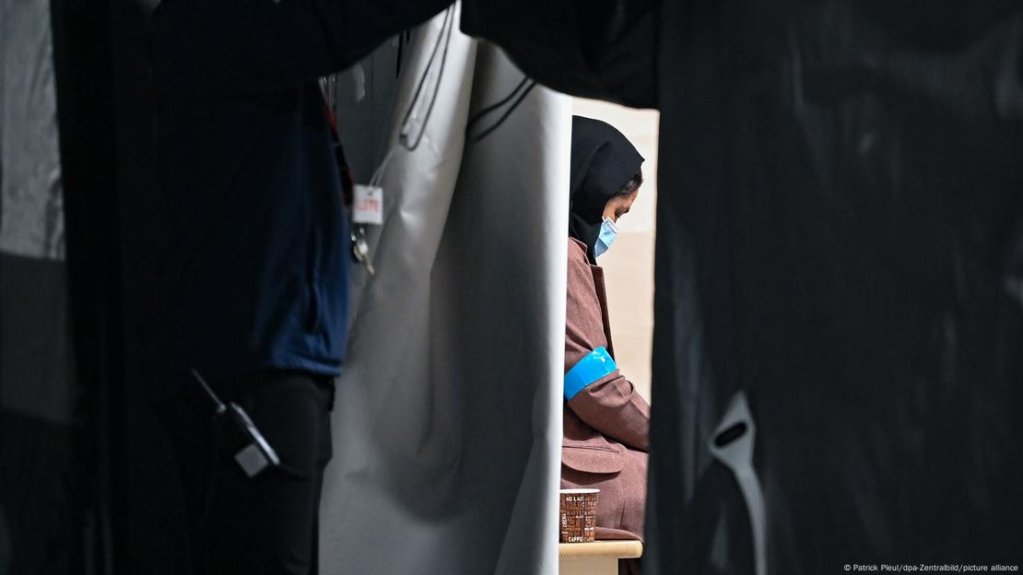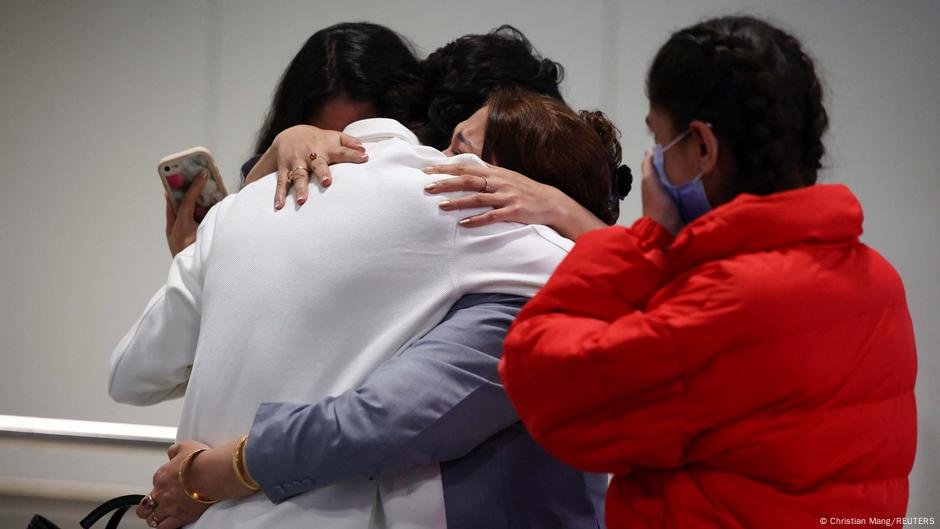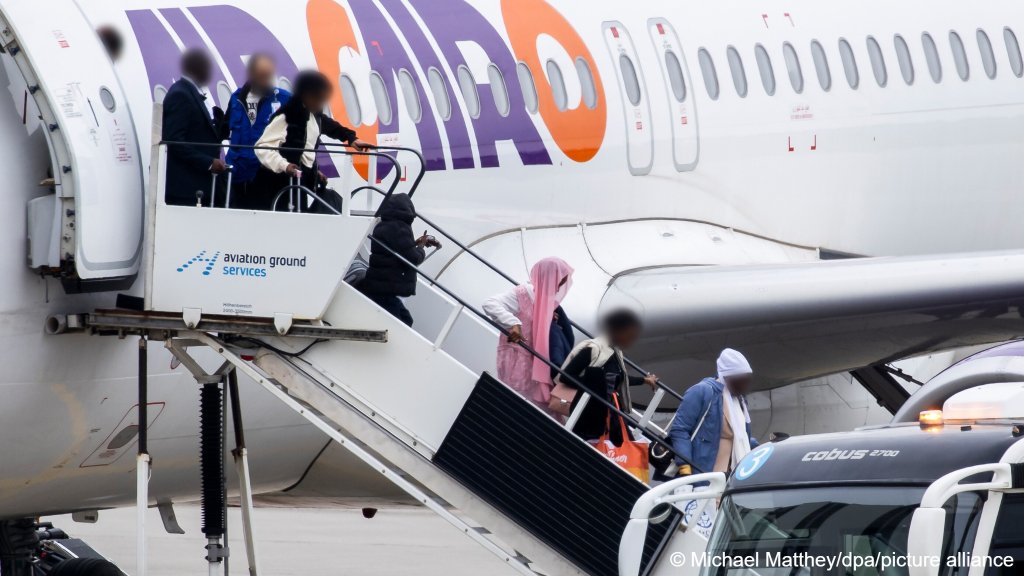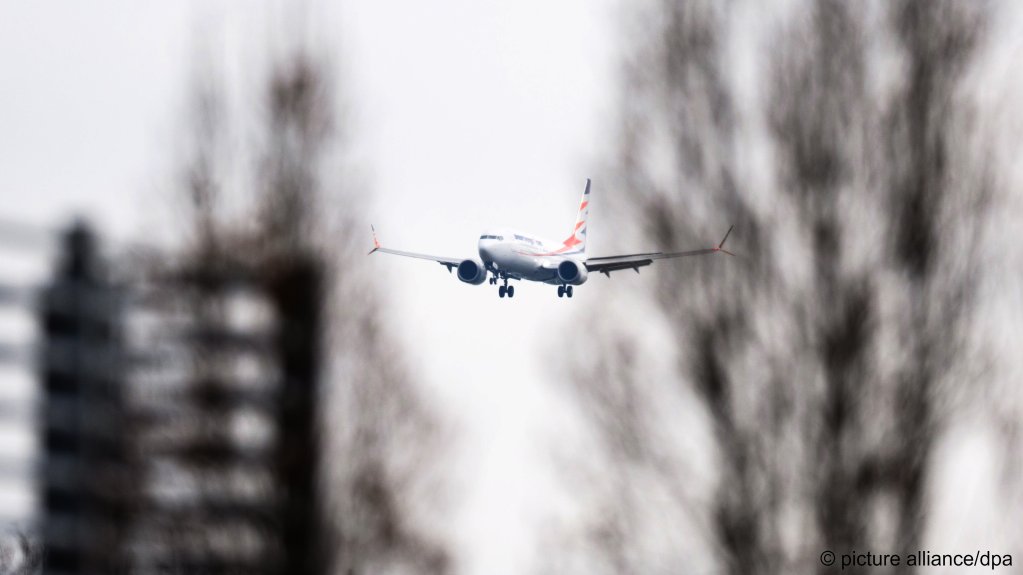Germany and the Netherlands are under renewed pressure to admit vulnerable Afghan nationals who face serious risks under Taliban rule, with recent court rulings and deportations drawing attention to Europe's outstanding commitments.
German Chancellor Friedrich Merz said on Tuesday (September 2) that his government was considering an urgent appeal for help for more than 200 Afghans who were deported back to their Taliban-run homeland from Pakistan. The group are among roughly 2,400 Afghans who have fled their country for Pakistan in recent years after being told Germany would grant them refuge -- before Berlin’s migration policy became more restricted under the new government.
The group of over 200, which was deported by Pakistan in mid-August, called their anonymous letter, seen by AFP, "a desperate plea for urgent intervention to save our lives" from the threat of Taliban retaliation.
Merz, asked about the letter during a Berlin press conference, said he took it "seriously" and pledged that legally binding commitments given by previous German governments would be honored. "There are some cases that are very clear. There are other cases that are not so clear. And in any case, a security check is required before each individual entry." He added: "Germany has entered into a number of legal obligations under the previous government, which it must of course also fulfil under this government."
Read AlsoEn route to Germany, Afghans face deportation in Pakistan

Amidst growing alarm over many of those left in limbo, Berlin on Monday allowed a first group of 47 Afghans who had successfully taken legal action to fly to Germany. The group included rights activists, artists, former judges and their families.
According to the Interior Ministry, "all of these people have fully completed the admission procedure and the security check." Two more women from the program arrived later that evening in Hanover, after missing a connecting flight in Istanbul.
Several Afghans were able to secure entry only after suing the German state, some with the support of the NGO Kabul Luftbrücke (Kabul Airlift). In addition, rights groups have filed criminal complaints against ministers, accusing them of neglect for failing to protect people already approved for resettlement.
Read AlsoGermany: Afghan women and girls almost guaranteed to receive asylum

Delays, deportations, and court orders
Germany’s new government, led by Merz, stopped the humanitarian admission program for particularly vulnerable Afghans in May. The program was originally intended not only for former local staff of German institutions and their relatives, but also for Afghans who fear persecution by the Taliban, such as lawyers and journalists.
German Foreign Minister Johann Wadephul said: "As a coalition, we clearly agreed to end voluntary admission programs as far as possible -- we stand by that." He added that legally binding admission promises would still be honored: "Nearly 50 people can therefore enter Germany today."
The issue gained further urgency after Pakistani authorities began deporting Afghans from the German admission program back to Afghanistan. The Foreign Office confirmed that about 2,100 people from the program remain in Pakistan and 200 in Afghanistan, with around 210 recently deported.

Interior Minister Alexander Dobrindt defended the slow process: "I am not prepared to give up regular admission procedures, I am not prepared to give up security checks."
A ministry spokesman said that more than 90 percent of applicants "have not yet completed all steps in the admission procedure."
Meanwhile, the higher administrative court of Berlin-Brandenburg ruled that as long as authorities had not yet issued binding admission commitments, they were allowed to review earlier decisions. In one case, involving a former high-ranking Afghan judge and his family, the foreign office argued that "entry under the programs was suspended," and the court upheld that position.
Read AlsoGermany ends admission freeze for vulnerable Afghans
Netherlands: Court rules in favor of embassy guards
While Germany grapples with stalled admissions and legal disputes, a court in the Netherlands has also weighed in on the fate of Afghans who once worked for its embassy in the country.
The District Court in the Hague has ordered the Netherlands to allow entry to 42 former Afghan security guards of its embassy in Kabul and their family members.
The judges found that "the Dutch state had not sufficiently fulfilled its duty of care toward these people and had therefore acted unlawfully." The ex-local staff had argued they were in danger under Taliban rule.
According to the ruling, the Afghans and their relatives -- restricted to life partners and dependent children under 18 -- must undergo the same procedures as all asylum seekers upon arrival.
The court also stated that while the Netherlands must ensure their transport and entry, it "had no influence over whether they are issued the necessary documents to leave their country."
Read AlsoNetherlands starts processing Syrian asylum cases once more
Mounting pressure
Both rulings reflect a pattern across Europe, where governments face lawsuits for halting or slowing Afghan resettlement programs, while courts continue to affirm that legal obligations must be respected.

In Germany, dozens have been admitted only after going to court, while thousands more remain in limbo in Pakistan. In the Netherlands, judges have now compelled the state to act on behalf of its former embassy guards. German officials say around 85 urgent cases are still pending in court, while thousands of others remain at earlier stages of the admission process.
For the Afghans still stranded in Islamabad or recently deported back to Kabul, uncertainty remains high. As one Afghan woman told dpa before departing Islamabad after 14 months of waiting: she spent her time there "full of worries," but now looked forward to a life "in freedom and safety."
Read AlsoItaly, France, and Germany team up for migrant repatriation
With AFP, dpa and Reuters.
